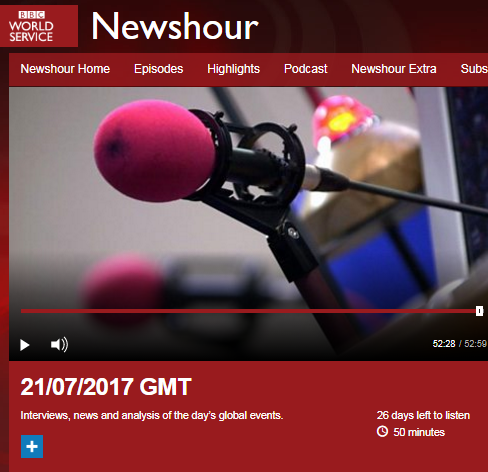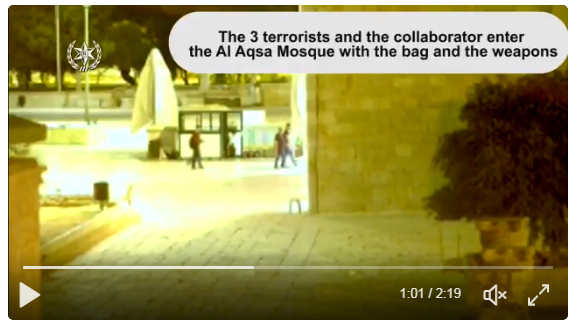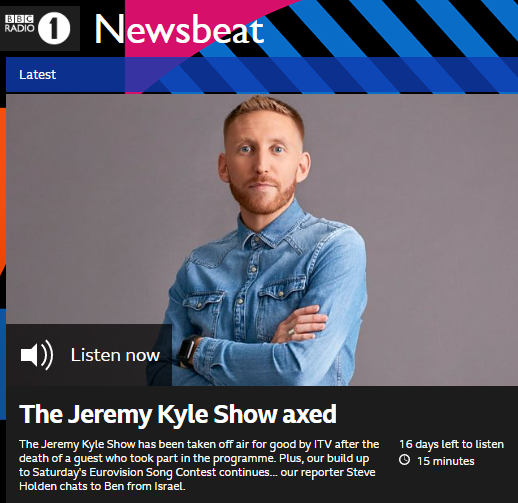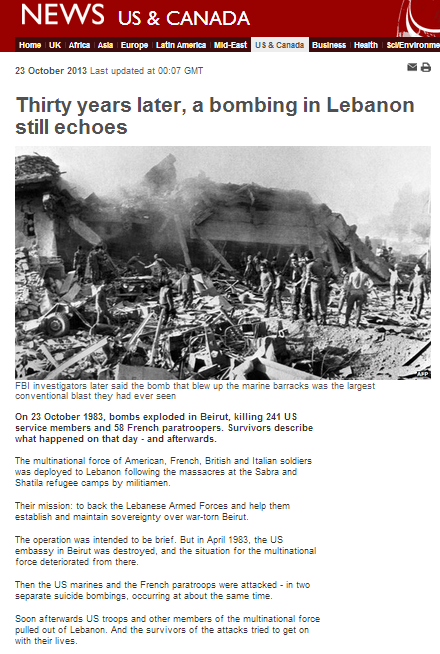Just over a year ago we documented changes in the terminology used by the BBC to describe Temple Mount.
“In late 2014, audiences began to see the employment of different terminology by some BBC journalists… […] the term ‘al Aqsa Mosque compound’ – or even just ‘al Aqsa Mosque’ – was employed to describe what the BBC previously called Haram al Sharif with increasing frequency from November 2014 onwards. […]
So how and why did that deviation from the BBC’s recommended terminology come about? As noted above, the change in language first appeared in November 2014. At the beginning of that month – on November 5th– the PLO put out a “media advisory” document (since removed from its website) informing foreign journalists of its “[c]oncern over the use of the inaccurate term “Temple Mount” to refer to Al-Aqsa Mosque Compound in Jerusalem”. That directive is of course part and parcel of the PLO’s tactic of negation of Jewish history in Jerusalem.”
Following that post, the BBC largely returned to using the terminology specified in its own style guide. However, the employment of that PLO recommended wording has been seen once again in some of the BBC’s reporting on the recent violence in Jerusalem – including in a backgrounder produced by the BBC Jerusalem bureau’s Yolande Knell.
“Now the gate to the al Aqsa mosque compound is open once again but to reach it you have to pass through one of those metal detectors.” [emphasis added]
On July 21st an edition of the BBC World Service radio programme ‘Newshour‘ included an item (from 49:58 here) that was introduced by presenter Julian Marshall as follows: [emphasis in bold added, emphasis in italics in the original]
Marshall: “And to Jerusalem now where dozens of Palestinians have been injured in clashes with Israeli police amid tensions surrounding the holy site known to Muslims as the Haram al Sharif and to Jews as the Temple Mount. Our Mid-East correspondent Yolande Knell joins us now and, Yolande, why are the Palestinians protesting?”
Knell: “Well these clashes are continuing now after Friday prayers turned into protests. There have been tensions all week after Israeli officials put in place new metal detectors at the entrance to the al Aqsa mosque compound; this site which is sacred to Jews as well – known as Temple Mount. These detectors were installed after an attack that killed two Israeli policemen last week and Israel has been insisting that these new security measures are about safety only; they don’t alter the sensitive status quo, as it’s called, at this disputed site. But Palestinians see them very much as an attempt by Israel to extend its control there and of course…ehm…Israel’s occupation of East Jerusalem is something…ehm…that is…err…really extremely…err…sensitive for Palestinians and any perceived changes at the al Aqsa mosque compound – at this holy site – can be a real flash-point for violence. We’ve seen that in the last few hours. There are now reports that a third Palestinian has been killed in these clashes between…err…protesters and Israeli security forces focused on Jerusalem but also around the West Bank. There have been clashes in Qalandiya checkpoint, in Ramallah, in Hebron and in Bethlehem where I was earlier, this after political factions called for a Day of Rage.”
Marshall: “And…erm…the metal detectors are not the only point of contention. I understand that there’s an age restriction at the moment on the number [sic] of Muslim worshippers who are allowed in.”
Knell: “Well that was something that was imposed for these Friday prayers. First of all, after this…eh….attack a week ago…ah…the Israeli authorities closed the whole compound for two days: this is something very unusual. Then, it has been opened through the week but Palestinians have been refusing to enter the compound, to go through these metal detectors and instead we’ve had hundreds of people praying on the street outside. So there have been clashes with police through the week. The restriction that was placed on today was that Muslim men under 50 were barred from entering the Old City of Jerusalem. There’s been this huge Israeli police presence all around the city and busloads of Muslim worshippers have been prevented from reaching it.”
As we see, in addition to promoting partisan PLO approved terminology to describe Temple Mount, Knell completely erased from her account of the installation of metal detectors the crucial fact that the three terrorists (whom she also deletes entirely from the story) who murdered the two Israeli policemen on July 14th did so using weapons which had been smuggled into al Aqsa mosque by an accomplice.
Knell completely erased from her account of the installation of metal detectors the crucial fact that the three terrorists (whom she also deletes entirely from the story) who murdered the two Israeli policemen on July 14th did so using weapons which had been smuggled into al Aqsa mosque by an accomplice.
She also failed to explain to listeners what the ‘status quo’ on Temple Mount entails and to clarify that Palestinian claims of “changes” are baseless, while refraining from telling audiences about the copious incitement from the Waqf and official Palestinian sources that sparked the violence.
However, Knell was not the only Middle East correspondent to compromise BBC impartiality by prioritising PLO recommended language over the standard BBC terminology to describe Temple Mount in a report on July 21st – as will be seen in part two of this post.
Related Articles:
Mapping changes in the terminology used by the BBC to describe Temple Mount
BBC backgrounder on Palestinian ‘metal detector’ outrage fails to tell all




